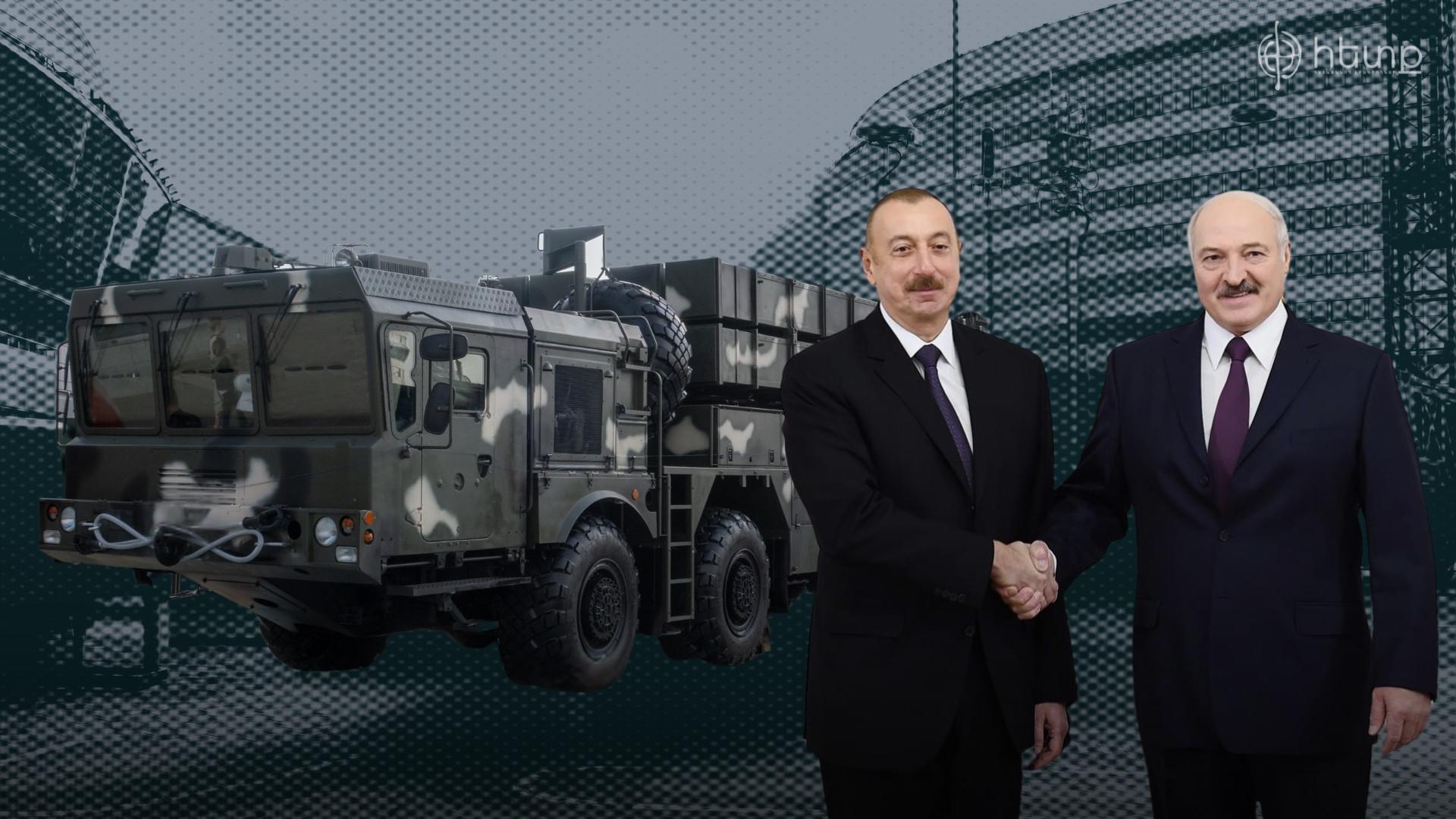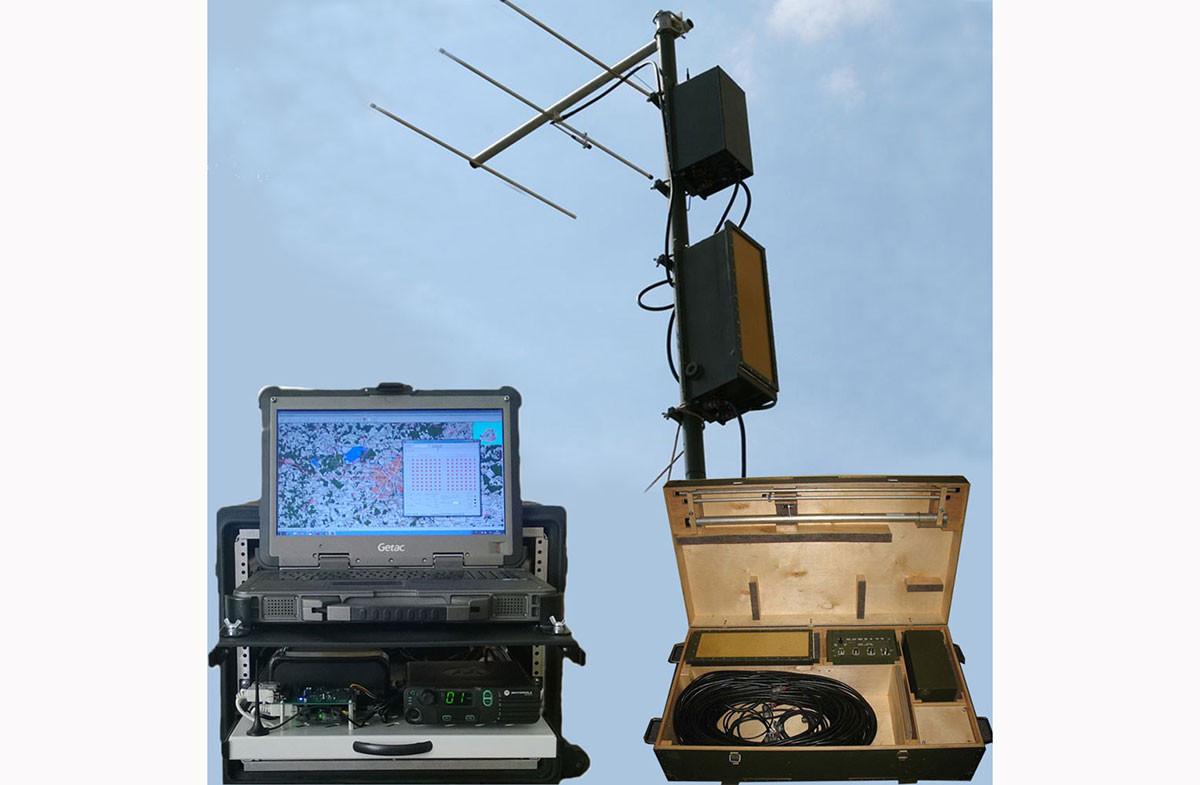
From Polonez to Optima: New Secret Documents on Belarus-Azerbaijan Military Trade
Hetq has obtained new secret documents regarding military cooperation between Belarus and Azerbaijan. Earlier this year, various military goods and services provided by Belarus to Azerbaijan were reported, along with several official letters exchanged between Belarusian enterprises and Azerbaijani officials from 2017 to 2023.
The agreements documented in these letters, along with their implementation, reveal how Belarus, despite being considered a partner of Armenia within the CSTO, has been intensively supplying military products and services to Azerbaijan. These supplies have primarily targeted Armenia and, in the past, Artsakh. As with previous reports, the letters are examined in chronological order.
Belarusian Specialists Work on Azerbaijan’s Polonez System Before the War
On August 26, 2020, just one month before Azerbaijan launched a full-scale war against Artsakh, Dmitry Baraznov, Chief Engineer of Belarusian "Volatavto" OJSC (ОАО "Волатавто"), sent a letter to Yuri Chiorni, Director of the "Precision Electromechanics Plant" Republican Manufacturing Unitary Enterprise (РПУП "Завод точной электромеханики"). The letter informed that specialists from Volatavto, MZKT, and Britex companies were prepared to travel to the "1221" region (referring to Azerbaijan) to perform reclamation work.
The MZKT plant (Минский завод колёсных тягачей, МЗКТ) produces the MZKT-7930 chassis, used in Belarusian Polonez multiple rocket launchers. The Polonez system, Belarus's alternative to Russia's Smerch, has been part of Azerbaijan’s military arsenal since 2018. During the 44-day war, Azerbaijan reportedly used both the Smerch and Polonez systems to shell Stepanakert.
Volatavto, established in 1991 as a subsidiary of MZKT and later becoming an independent joint-stock company in 2009, is involved in the production of the Polonez system. Britex Industrie-Technik, a German machine-building company with a representative office in Belarus, specializes in lifting equipment, among other segments. The Precision Electromechanics Plant also contributes to the development and production of the Polonez system.
The term "reclamation work" refers to maintenance or repair work requested by the buyer or customer. In this case, the Azerbaijani side had identified problems with the Polonez system, prompting Belarus to send specialists to resolve the issues.
In June of this year, the "Belarusian Hajun" project, which monitors the activities of Russian and Belarusian troops, published several secret documents on X (formerly Twitter) regarding the 2020 Polonez system repairs in Azerbaijan. These documents reveal that, in February 2020, Azerbaijan's Ministry of Defense presented a list of defects found in the Polonez systems to the Belarusian side, including a problem with the crane of one of the transport loaders. Preventive maintenance was also planned on six MZKT-7930 chassis to avoid further breakdowns. Specialists from Belarusian companies were organized to visit Azerbaijan in early August 2020, and the act confirming the correction of the crane defects was signed on September 15 in Baku.
These details indicate that Belarusian specialists were involved in ensuring the operational status of Azerbaijan's Polonez systems shortly before, and potentially during, the 44-day war. The documents also mention the Polonez-MA system, which is believed to be a version of the modernized Polonez-M system for Azerbaijan. The Polonez-M system has a maximum firing range of 300 km.
Belarusian Specialists Regularly Travel to Azerbaijan
In 2021, additional letters from Belarusian military-industrial enterprises, focusing on the Polonez systems, revealed the continued close cooperation between Belarus and Azerbaijan. Belarusian specialists regularly traveled to Azerbaijan to provide technical support for military equipment.
In May 2021, Igor Velentey, the acting general director of the State-owned Foreign Trade Unitary Enterprise "Belspetsvneshtechnika" (ГВТУП "Belspецвнештехника"), wrote to Yuri Chiorny, director of "Volatavto" OJSC, referencing a complaint from Azerbaijan regarding the long repair period of a remote control panel for one of the Polonez system’s V-300TZM transport loaders. The panel had been under repair for over six months, and after fixing the loader crane defect in September 2020, the spare parts kit for the crane had not been replenished. Velentey urged immediate action, citing the October 2016 agreement with Azerbaijan for the purchase and servicing of the Polonez systems.
In August 2021, ten specialists from the MZKT enterprise were sent to Azerbaijan for the periodic maintenance of 12 Polonez chassis (MZKT-7930) and their engines.
More Business Trips for Belarusian Specialists
Belarusian specialists traveled to Azerbaijan in 2021 not only for Polonez repairs. A September order from the general director of "Belspetsvneshtechnika" dispatched a leading specialist from the enterprise's special equipment department to Baku for 23 days (September-October). The work site mentioned in the order was Concept Project LP, a Glasgow-registered organization with Azerbaijani roots. Belarusian documents suggest the company is linked to military activities, despite its listing as an international trade and investment entity in the British registry.
Between 2017 and 2019, the main shareholder of Concept Project was Alexander Daraselia from Georgia. From 2019 to 2023, the shareholder became Anatoliy Akhanov from Azerbaijan, followed by Leyla Akhanova in 2023. Concept Project also had a controlling stake in Azairtechservice LLP, a British company with Azerbaijani connections, which was dissolved in July 2024.
Belarus Offers Azerbaijan GPS-Jamming Devices
Previous reports mentioned the Groza-S anti-drone mobile stations delivered to Azerbaijan by Belarus in 2018, developed by Belarusian company "KB Radar" OJSC (ОАО "KB Radar").
In 2024, Igor Sadovsky, the director of KB Radar, wrote a letter to Igor Velentey of Belspetsvneshtechnika regarding ongoing cooperation with Azerbaijan. The letter revealed that in 2016-2017, Belarus delivered Optima-3.2 systems to Azerbaijan, designed to suppress Global Navigation Satellite System (GNSS) signals, including American GPS and Russian GLONASS systems.
The modern version of Optima-3.2 extends its capabilities to suppress European Galileo and Chinese BeiDou signals. Azerbaijan could use these systems to interfere with Armenia's civil and military infrastructure, which relies on GPS and similar systems. Specifically, Optima-3.2 can target the L1 frequency band used by American GPS (1563-1587 MHz), essential for navigation purposes.
Proposal for Cooperation on Optima-3.2 Systems
In the letter, Sadovsky outlined a proposal for cooperation with Azerbaijan regarding the Optima-3.2 system. The first step was for Azerbaijan to select an enterprise to participate in the joint project. KB Radar would develop a joint work plan with that enterprise, based on its capabilities. Following this, a contract for the transfer of the first Optima-3.2 system would be signed, and Azerbaijani specialists would receive training.
After completing these steps, the first Optima-3.2 system would be delivered to Azerbaijan. During production, Azerbaijani representatives would visit KB Radar’s facilities to familiarize themselves with the process. Once a joint production plan was agreed upon, Belarus would supply the necessary modules, support the assembly of Azerbaijani components, and train end users in Azerbaijan on operating the system.
The Optima-3.2 system, which includes nine radio interference transmitters and an automated control system, was priced at $750,000. This price covered technical training for ten Azerbaijani specialists over ten days in Belarus, and operational training for another ten specialists in Belarus and Azerbaijan. The price also included a one-year warranty, spare parts, and operating documents.
The first Optima-3.2 system was expected to be delivered 11 months after Azerbaijan's advance payment of 50% of the total price to KB Radar. The technical-commercial offer remained valid until July 1, 2024. Azerbaijan’s response to the proposal is unknown.
Belarus's Continued Military Trade with Azerbaijan
The correspondence highlighted here demonstrates how Belarus, despite its partnership with Armenia within the CSTO, has continued its military trade with Azerbaijan, both before and after the 2020 war. Despite Azerbaijan’s aggressive rhetoric under Ilham Aliyev’s leadership, particularly toward Armenia and Artsakh, Belarus remains a key supplier of military goods and services.
This ongoing relationship raises concerns about future military escalations, given the support Azerbaijan receives from foreign political actors, both large and small.
Design of the first image by Nare Petrosyan
 Videos
Videos Photos
Photos


Comments (1)
Write a comment